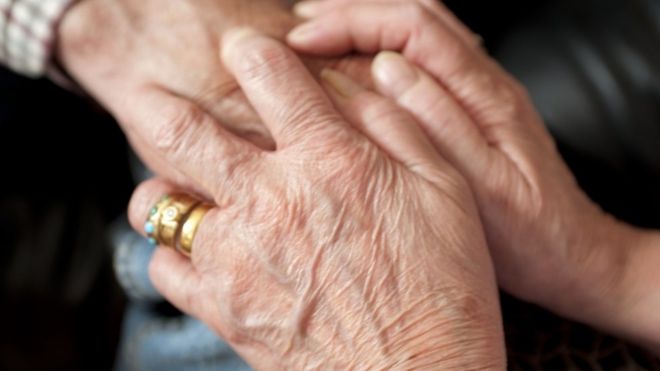Care system gets 'biggest shake-up in 60 years'
- 1 April 2015
- Health
Major changes to the care system in England are being introduced in what is being dubbed the biggest shake-up for 60 years.
The Care Act 2014 includes rights for those receiving care and those who provide it to their loved ones.
It includes standards for access to services from care homes to help in the home for tasks such as washing and dressing.
Meanwhile, NHS and care budgets are being merged in Scotland.
The Public Bodies (Joint Working) Act has been described as the most substantial reform north of the border for a generation.
It effectively forces councils and the NHS to work together to provide more streamlined services.
That aim is also a major topic of debate in England in the election campaign with the Conservatives, Labour, Liberal Democrats, UKIP and Greens all having plans for greater integration.
Policy guide: Health and care
This issue includes NHS funding, GP access and social care, particularly of older people.
But the changes coming into force in England on Wednesday apply only to the care system for older people and younger adults with disabilities.
Four major changes are being introduced:
- The creation of national eligibility criteria establishing for the first time when someone should be entitled to help - to date, it has been up to councils to set their own criteria
- A duty on councils to offer schemes by which those who need to pay for residential care can get a loan from their local council, which is then paid back from their estate after death
- Giving carers for the first time the same right to assessment and support as the people they care for; before, they had to provide "substantial care on a regular basis" to get an assessment
- Those who pay for care themselves will be entitled to go to councils to get advice and information about the care system.
To help protect people's assets, a cap on care costs they have to pay for - set at £72,000 for the over-65s - will kick in from April next year. How the cap works for younger people has still to be finalised.
Today's changes, however, still mark a major milestone in care services, which experts say have hardly changed since the current system was created along with the NHS after the Second World War.
BBC Cost of Care project

The BBC has launched an online guide to the care system for the over-65s. The "care calculator" covers residential care and the support provided in people's own homes, for tasks such as washing and dressing.
Users can submit their postcode and find out how much each service costs where they live in the UK.
There is also a dedicated BBC Cost of Care website, with news stories, analysis and video.
- The care calculator
- Cost of Care website
- How the systems differ in the UK
- England's care cap explained
David Pearson, president of the Association of Directors of Adult Social Services, said the changes were "probably the most significant development" since 1948.
But he said there were still issues to resolve on the underfunding of the system. Unlike the NHS, the care system budget has been cut in real terms this Parliament.
Izzi Seccombe, leader of Warwickshire council, who chairs the Local Government Association's Wellbeing Board, agreed with both points.
"Councils simply cannot afford any more financial burdens when social care services are already chronically underfunded," she said.
Janet Morrison, of the charity Independent Age, said the Care Act had the "potential to revolutionise" services.
But she said: "With a rapidly ageing population, we need an honest debate during and after the election about the true costs of care."









